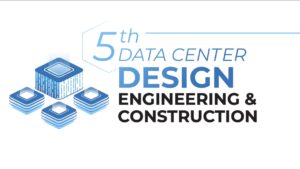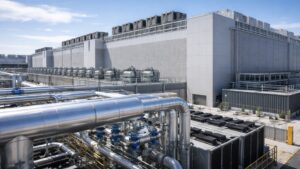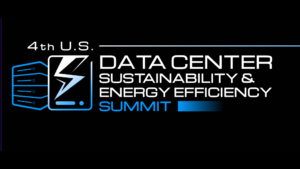Ever start a project feeling confident, only to find that the methods are changing halfway through? In the EPC world today, that’s not the exception; it’s the rhythm. Tools update mid-design, workflows have a shift without warning, and what worked last quarter might slow you down now. Field experience still holds value, but in the context of EPC careers 2025+, it isn’t the anchor it once was.
The professionals who are leading now aren’t just seasoned, they are adaptable too. They know how to shift gears efficiently, read the signals early, and move with the chaos. This article cuts right past the buzz to find out what actually makes professionals irreplaceable in the modern EPC landscape.
Technological Advancements Shaping EPC Careers 2025+
Many EPC professionals tend to see tech upgrades as an IT issue. However, today’s real shift comes from the major impact of technological advancements in EPC on everyday decisions. Tools now shape thinking and not just execution, from pre-bid modeling to sequencing construction. This section goes through the specific digital competencies that give shape to the future of EPC careers 2025+:
Leveraging AI and Automation for EPC Efficiency
AI tools are no longer elements sitting in the background; they actively drive task flows in EPC projects. The majority of the engineers interact with AI, whether they plan on it or not. For instance, take quantity handoffs. Automation now parses models and flags any discrepancies in minutes. So, this means the role of an engineer is seeing a shift from performing these tasks to validating them. However, don’t consider this validation as passive. It requires incredible judgment and real-time oversight during design and procurement cycles.
This shift creates a requirement for engineers who can think beyond the traditional inputs. AI can create multiple options of design, but it cannot choose which trade-off matters most on a site. Hence, this responsibility lands on those professionals who understand both data and context. In EPC careers 2025+, the demand isn’t for someone who uses AI but for those professionals who know how to embed AI into the workflow without losing technical control.
Using AR/VR for Enhanced Site Management and Safety
Augmented and virtual reality impact EPC job sites directly and significantly. This is not a futuristic capability; this is something that exists now, reducing rework and improving safety. When superintendents tour the site with AR goggles, they spot out-of-place items and misalignment before concrete gets poured. Moreover, during project meetings, AR and VR images replace many stable 3D model photographs; instead of looking at something that may never come to fruition, VR shows them what will be constructed in 3-6 months. They’re corrections as much as they are visualizations.
This creates a specialized skills gap. Engineers must know how to interface with AR/VR devices, but they must also be able to assess how the informational models translate into field-based usable information. For instance, when a scheduler walks through a 4D VR experience, it’s not about watching an animated sequence come together perfectly. Instead, it’s about recognizing an issue early on, such as a crane path moving into scaffold timing or intersecting with electrical efforts. To stay competitive, industry professionals will have to learn how to use these systems as real-time, active decision-making tools instead of just another visual aspect of what’s possible in the future for EPC projects.
Mastering Digital Twin Technology for Efficient Project Execution
Digital twins, as one of the technological advancements in EPC, have gone beyond asset management. They now run in real time during design, procurement, or even construction. The issue that stands out is that most EPC teams still view it as a static dashboard. So, that’s exactly where the opportunity lies. Those who cannot interact with a live digital twin as a control interface gain major leverage in managing scope and sequencing.
For instance, during procurement phases, the twin can simulate the impact of a delayed shipment on mechanical tie-ins. Additionally, during commissioning, the twins help field teams anticipate field dynamics across complex layouts. This means professionals need to get comfortable making quick, informed calls as the model keeps changing. By 2025, knowing how to work with digital twins and pull out what matters won’t be optional—it’ll be central to the future of EPC projects.
Harnessing Data Science for Smarter EPC Decision-Making
Data was earlier just in reports. Now, as one of the major technological advancements in EPC, it flows into live dashboards, analytics engines, and predictive models. These can forecast everything from material delays to crew efficiency. But there’s a catch: most EPC engineers still read reports the old way. So, what’s now in demand is the ability to spot a deviation before it escalates.
For instance, if labor productivity drops below baseline for two days in a row, data systems will flag it. But unless engineers know how to interpret that against daily weather conditions or last-minute scope changes, the insight goes nowhere. This is where EPC workforce skills must evolve. Professionals need to frame problems using both intuition and structured inputs of data. No one’s asking engineers to become data scientists, but those who can blend their field experience with a slight analytics will always outpace those working on instinct.
High-Demand Technical Skills for 2025+ EPC Workforce
As digital workflows evolve, strong technical skills remain the backbone of EPC careers 2025+. Today’s engineers must go beyond traditional know-how and actively apply their expertise across digital, sustainable, and secure project environments. This section explores the high demand technical skills for EPC projects shaping the new standard:
Mastering Advanced Project Management Tools for EPC Success
Project management in EPC isn’t about following a Gantt chart anymore. Teams now work across dozens of interlinked tools—construction sequencing apps, integrated procurement platforms, and real-time resource allocation dashboards. Engineers and planners who can shift easily between tools—especially ones tied to BIM and schedule-cost overlays—start making a difference right away. The real issue usually isn’t data overload; it’s knowing which call deserves attention first.
Take a planner who spots a delay on the procurement dashboard and quickly ties it to a holdup in the construction model—that move alone can save days of back-and-forth. Sure, tools like Primavera P6, EcoSys, or Procore matter. But what gives someone an edge is knowing when to escalate, when to adjust timelines, and when to move resources, while the window’s still open. This hands-on fluency is now a core part of the EPC workforce skills toolkit.
Expertise in Green Engineering and Sustainable Practices for EPC Projects
More tenders now include strict emissions benchmarks, circular material plans, or embedded carbon calculations. Engineers who don’t just understand these requirements—but can also drive low-impact design decisions in early-phase planning—are becoming essential. For instance, switching to modular builds or choosing materials with verifiable cradle-to-gate data can reduce risk at later stages.
This shift doesn’t just sit with environmental specialists. Mechanical, electrical, and civil engineers need to see how their choices play into the bigger sustainability picture. Teams that bring this thinking into scope checks and supplier picks land more bids and deal with fewer changes later. These are the skills in demand for EPC engineers 2025+, and they’re influencing project viability as much as cost and time.
Proficiency in Cloud-Based Construction and Procurement Platforms
The future of EPC isn’t tied to physical site visits or desktop-bound software. Cloud-first platforms now manage RFQs, change orders, and subcontractor coordination across continents. Engineers fluent in these systems avoid duplication, reduce cycle times, and maintain version control when dozens of updates hit at once.
This isn’t about IT support—it’s about engineers using Oracle Aconex, SAP Ariba, or Autodesk Construction Cloud to keep the chain moving. When site data feeds back into engineering in near real-time, a single misalignment can derail the entire workflow. Professionals who can trace where that misalignment occurred—and resolve it through the system, not around it—are the ones future-ready. For any engineer navigating career paths in EPC for engineers 2025+, platform fluency is now foundational.
Cybersecurity in EPC: Safeguarding Project Data and Systems
Cyber attacks are now a reality. Ransomware in construction software, phishing down subcontractor chains, or infected BIM models—each of them has taken a turn at recent EPC disruption. And since digital systems manage design approval, purchase procedures, and site access, every vulnerability is a danger looming large.
EPC professionals now need to possess working knowledge of how data in projects is safeguarded, not just awareness. It’s the basics—holding off on the phishing link until you think you should click, not dropping sensitive files into the first folder you see, and realizing how endpoint protection works when five vendors are all talking to the same system. Cybersecurity’s not just on IT anymore. Everyone’s in it. Engineers who grasp this reality and build it into their daily tasks help protect schedules and contracts. Thus, it makes it a key part of high demand technical skills for EPC projects.
Evolving Soft Skills for Future EPC Leaders
Modern EPC environments require more than pure technical accuracy. With increasingly global teams and tighter timetables, achievement today turns on communication, emotional competence, and adaptive leadership. This section addresses the most important soft skills dictating leadership in EPC careers 2025+:
Leading Innovation and Collaboration in Multidisciplinary EPC Teams
In 2025+, EPC leaders won’t just manage—they’ll lead fast-moving, cross-functional teams that span time zones and disciplines. So, collaboration cannot be limited to status meetings and shared drives. Heads of procurement need to be aligned in real-time with mechanical engineers, and site managers need to update plans on the basis of real-time feedback from design teams. This is possible only when leaders foster free-flowing discussion and work actively to cut silos.
In these types of teams, authority doesn’t energize; trust does. Leaders who deliver understand when to stand aside, when to chime in, and when to just listen—especially when someone quiet has something worth hearing. This can involve changing the way team reviews are set up—less about status updates, more about real blockers. Or perhaps it could mean delegating decision-making to junior members of the team, not for show, but in order to make a difference. These are small things, but they continue to change teams from compliant to innovative. That is the change propelling the future of EPC projects.
Building Emotional Intelligence for Conflict Resolution and Team Cohesion
Most team tension in EPC doesn’t come from clashing personalities. It comes from scope gaps, vague expectations, or the pressure of a slipped schedule. A late material shipment might hit site crews hard, even if it looks like a minor issue in the system. If a leader misses the emotion behind that, frustration simmers, and small issues grow fast.
That’s where emotional intelligence comes in. High EQ leaders feel the room before it gets out of control. They switch gears when a team member shuts down, or redirect conversations that begin to go off in blame. This level of awareness emerges at design-build phase shifts, contractor walk-downs, or mid-project team transitions. And most of the time, it’s the difference between a stuck team and one that remains in alignment. When emotional intelligence directs communication, teams not only avoid conflict but also tighten up and work more efficiently. Strong EQ, then, becomes one of the skills in demand for EPC engineers 2025+.
Mastering Change Management and Problem-Solving in EPC Projects
Change is constant in EPC—clients shift requirements mid-design, weather disrupts execution, or global events delay shipping. Change isn’t a roadblock in EPC work—it’s part of the road itself. Good leaders don’t just react to it; they build it into the way their teams operate. That’s where real change management shows up—not in spreadsheets or variation logs, but in how crews stay focused when plans shift midstream.
Solving problems under pressure is part of that rhythm. Strong EPC leaders don’t waste time circling the issue. They define it fast, pull in the right people, and make sure those people see the full picture—not just the technical fix, but how it plays against cost, deadlines, and project risk. Instead of reacting, they anticipate shifts by running scenario planning sessions or stress-testing project phases ahead of time. These habits build resilience into teams and make project pivots far less painful. As part of the high demand technical skills for EPC projects, change fluency will separate stagnant teams from agile ones.
Cross-Cultural Communication and Leadership in Global EPC Projects
Come 2025, most EPC projects won’t just run across borders—they’ll drag in time zone gaps, language slips, and quiet, unwritten ways different teams make calls. This mix can either slow things down or sharpen a team, depending on how the person leading it handles the pressure. Cross-cultural leadership isn’t about learning customs by heart. It’s about spotting disconnects early—before a small misread turns into a delay no one saw coming.
The best leaders in these setups know when to slow down and explain, when to let the silence hang, and when to ask the extra question. One crew might expect instructions to be spelled out. Someone else might shut down if there’s no space to weigh in. What sets strong leaders apart? They notice those shifts and adjust in the moment. In global EPC environments, cultural fluency is not a bonus—it’s essential to every role in the evolving career paths in EPC for engineers 2025+.
Navigating EPC Career Paths: Upskilling and Continuous Learning
EPC careers 2025+ won’t follow linear trajectories. Engineers will shift across roles, projects, and even continents as technologies and client needs evolve. Static skill sets won’t cut it anymore. This section explores how professionals can actively shape their career paths in EPC for engineers 2025+ through upskilling and sustained industry engagement:
Continuous Education in Emerging EPC Technologies for Career Growth
The fastest-growing EPC roles today demand real-time fluency in tools most engineers didn’t learn in school. AI-integrated design platforms, model-based procurement, and real-time site monitoring are already common, yet many professionals still treat them as optional. Those who proactively learn—not wait for training—stay in demand. This might mean picking up a digital twin platform during a lull between projects or shadowing a BIM coordinator during design reviews.
But this goes beyond knowing tools. Continuous learning also shapes strategic thinking. Engineers who understand how digital platforms affect procurement timelines or site sequencing don’t just execute—they guide project direction. It’s rarely formal, but this kind of hands-on, self-driven learning is what builds the EPC workforce skills that matter in 2025 and beyond.
Top Certifications and Training Programs for EPC Careers 2025+
Certifications won’t land a role by themselves, but they signal readiness, especially in high-risk or tech-forward EPC projects. In 2025+, project owners increasingly demand engineers certified in sustainable design frameworks, cloud-based collaboration, or risk-based project controls. Programs like PMP, LEED AP, or ISO 19650 compliance training now tie directly to bid eligibility and client audits.
Timing matters. Earning a certification right before a role shift—say, from field engineer to digital construction lead—can fast-track promotion. Likewise, team leads often scout for rising talent during industry-sponsored training cohorts. Choosing programs aligned with emerging tools and workflows ensures credentials don’t sit idle. Certifications, when used strategically, feed long-term growth across diverse EPC careers 2025+.
Building Career Success Through Mentorship and Networking in EPC
Engineers rarely advance in EPC by sending cold applications. Connections matter—not just for finding roles, but for navigating tricky project choices and learning from experienced leaders. Mentorships help engineers work through career pivots, while peer networks reveal on-the-ground tech adoption long before it shows up in training decks.
This isn’t about attending every event or joining every LinkedIn group. Instead, it’s about intentional relationships: partnering with a senior planner to shadow cost estimation workflows, or joining an online cohort tackling AR use in construction. These ties offer practical insight and open doors that formal CVs can’t. Networking, when it’s specific and project-linked, plays a central role in the long-term success across the future of EPC projects.
Maximizing Career Development at EPC Conferences and Industry Events
Conferences today aren’t just lectures—they’re working hubs for building relevance. At top EPC events, you’ll see teams demo AI-driven safety audits, prototype sustainable material chains, or argue over carbon tracking tools in panel rooms. Attending helps professionals see where the field’s headed, what skills are rising, and who’s already pushing boundaries.
The key isn’t just to attend—it’s to engage. This might mean presenting a case study on cloud deployment at a regional summit or joining a breakout on cross-border procurement. These moments give engineers visibility, context, and the push to sharpen skills before the next project shift hits. For anyone serious about navigating dynamic EPC careers 2025+, events act as career accelerators—if used strategically.
To Sum Up
The future of EPC projects belongs to those who stay ahead of the curve. Engineers who adapt early—those who move with technology shifts, adjust to global delivery models, and apply insight to execution—will lead the field in every meaningful way. Learning the right tools or building the right team matters less if it happens too late. The time to pivot is now.
This article mapped the most relevant skills in demand for EPC engineers 2025+, along with where the industry is headed. If you want to stay competitive and connected in the real world of EPC careers 2025+, don’t just read—engage. Be part of the next wave of transformation at the 2nd American EPC & Project Management Summit, happening April 15-16, 2026, in Houston, TX. That’s where the sharpest minds will be—on stage and in the crowd.




